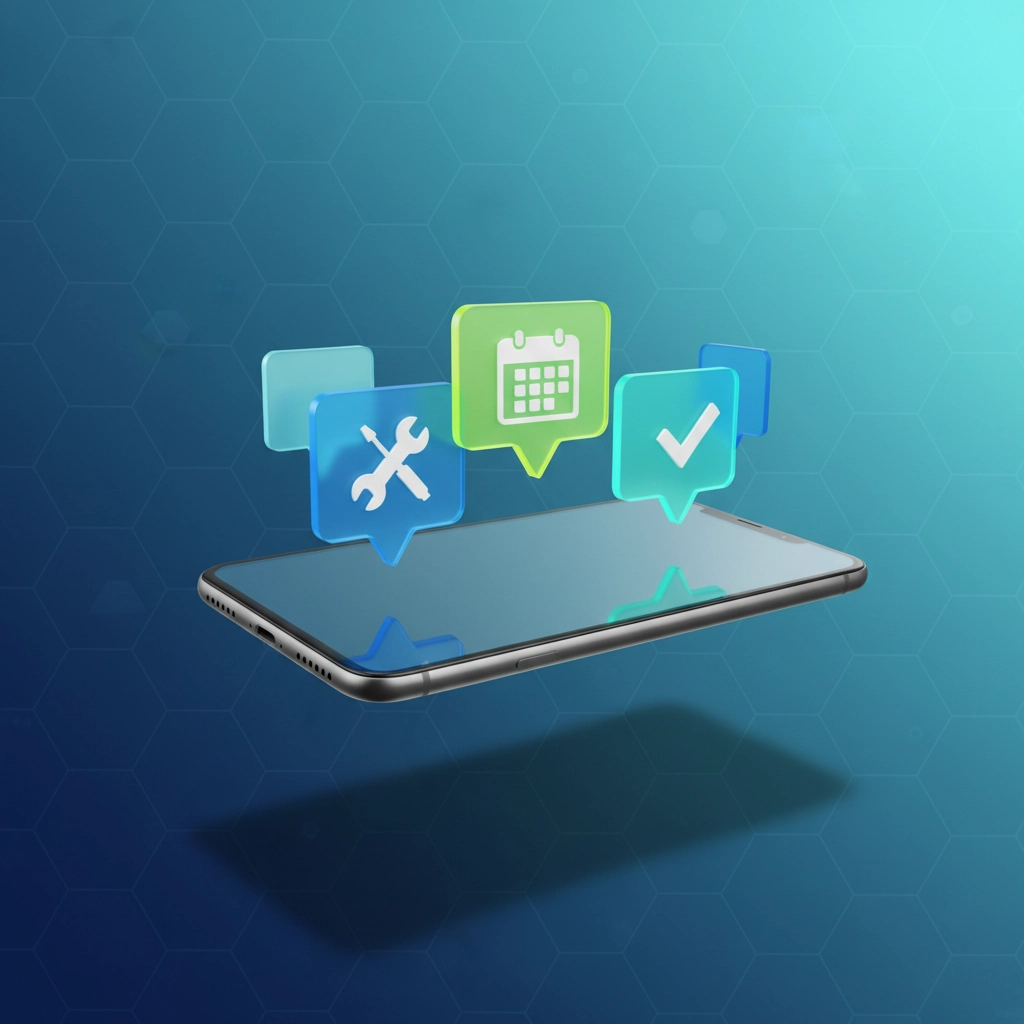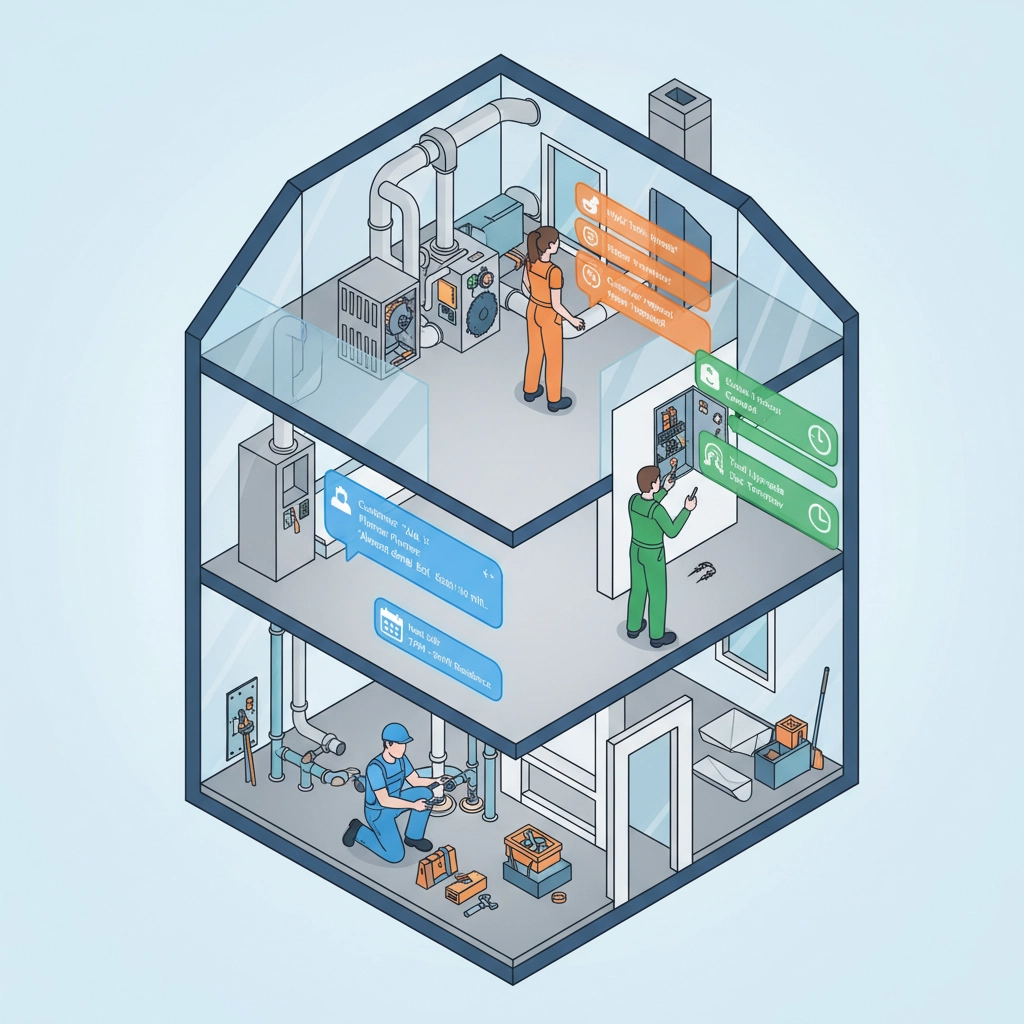Why Everyone Is Talking About AI Chatbots (And You Should Too)
- kentarian30
- 13 minutes ago
- 5 min read
You've probably noticed them popping up everywhere lately, those little chat windows asking "How can I help you?" on websites, the voice assistants getting smarter by the day, and your competitors suddenly bragging about their "24/7 customer support." AI chatbots aren't just another tech trend that'll fade away. They're reshaping how businesses connect with customers, and if you're running a home service company, you need to know why everyone's talking about them.
The Numbers Don't Lie
Here's the reality: over 80% of companies have already integrated some form of chatbot technology into their operations. That's not a small group of tech-savvy early adopters, that's the majority of your competition potentially getting ahead while you're still manually answering every phone call and text message.
The chatbot market is projected to grow by $1.34 billion in 2025 alone. ChatGPT leads the pack with 60.6% market share, while other players like Google Gemini and Microsoft Copilot are fighting for their slice. But here's what matters for your business: 72% of business leaders now believe AI outperforms humans in certain customer service functions.

Why Home Service Businesses Are Going All-In
Let's get practical. You're running a plumbing, HVAC, electrical, or landscaping business. You're dealing with emergency calls at midnight, customers who want instant quotes, and the constant juggling act of scheduling appointments while you're elbow-deep in actual work. Sound familiar?
This is exactly why AI chatbots are becoming game-changers for home service companies:
Never Miss Another Lead: Your chatbot works 24/7, even when you're sleeping or busy on a job site. That 2 AM emergency call or weekend inquiry? Your bot captures it, qualifies the customer, and schedules follow-up for first thing Monday morning.
Instant Quote Requests: Instead of playing phone tag for simple service requests, customers can describe their problem and get preliminary pricing information immediately. Your chatbot can ask the right questions, square footage, type of system, urgency level, and provide ballpark estimates based on your pricing structure.
Appointment Scheduling Made Easy: No more back-and-forth texts trying to find a time that works. Modern chatbots integrate with your calendar and can book appointments in real-time, send confirmations, and even handle rescheduling requests.
The Personalization Game-Changer
Here's where it gets interesting. Modern AI chatbots aren't those clunky, robotic things from five years ago. They're getting scary good at sounding human. Over 70% of customers now expect personalized service, and these new chatbots deliver by remembering customer history, preferences, and past service calls.
Imagine this scenario: Mrs. Johnson contacts your HVAC company through your website chat. Your AI immediately recognizes her from the system replacement you did last year, knows she has a two-story home with a specific unit model, and can instantly pull up her service history. Instead of starting from scratch, the conversation begins with "Hi Mrs. Johnson! I see it's been about six months since your last maintenance visit. How's the new system performing?"

Real-World Applications That Actually Matter
Let's break down how successful home service companies are using AI chatbots right now:
Emergency Triage: Your chatbot can assess the urgency of service requests. Is this a "my basement is flooding" emergency or a "my faucet drips occasionally" situation? The AI learns to prioritize and route accordingly.
Parts and Inventory Questions: Customers calling about specific parts or wondering if you carry certain brands can get instant answers. Your chatbot connects to your inventory system and provides real-time availability.
Follow-Up and Reviews: After completing a job, your chatbot can automatically follow up with customers, ensure satisfaction, and request reviews. This happens consistently, which most busy contractors struggle to do manually.
Lead Qualification: Not every inquiry is worth your time. Your chatbot can ask qualifying questions upfront: budget range, timeline, project scope: so you only spend time on serious prospects.
Addressing the Elephant in the Room
Look, we've all heard the horror stories about AI giving bad advice or customers getting frustrated with "talking to a robot." These concerns are legitimate, but they're largely based on outdated technology or poor implementation.
The key is setting proper expectations and boundaries. Your chatbot should clearly identify itself as AI assistance and know when to transfer to a human. For complex technical issues or high-value projects, it should seamlessly hand off to your team while providing a summary of the conversation.
Recent studies show that 55% of businesses report improved customer satisfaction when chatbots are implemented properly. The trick is using them to handle the routine stuff: scheduling, basic questions, initial contact: so your human team can focus on complex problem-solving and relationship building.

The Competitive Edge You Can't Ignore
Here's the bottom line: while you're manually responding to every inquiry and missing calls because you're on job sites, your competitors with AI chatbots are capturing leads 24/7, providing instant responses, and appearing more professional and accessible.
Think about your own behavior as a consumer. When you need a service quickly, do you wait for a callback, or do you move on to the next option that responds immediately? Your customers think the same way.
The businesses winning in home services aren't necessarily the ones with the best technicians (though that helps). They're the ones who make it easiest for customers to reach them, get information, and book services. AI chatbots are becoming essential infrastructure for that customer experience.
What This Means for Your Business
You don't need to become a tech expert overnight, but you do need to understand that this isn't optional for much longer. Companies that adapt to AI-assisted customer service are seeing measurable results: more leads captured, faster response times, higher customer satisfaction, and ultimately, more revenue.
The technology has matured to the point where it's affordable and practical for small to medium-sized home service businesses. We're not talking about massive investments or complete overhauls of how you operate. We're talking about smart automation that handles the routine stuff so you can focus on what you do best: actually serving your customers.
The conversation around AI chatbots isn't just tech industry hype. It's a fundamental shift in customer expectations and business operations. Your customers are already interacting with chatbots from other businesses and getting used to instant, personalized service.
The question isn't whether AI chatbots will become standard in home services: they already are. The question is whether you'll be ahead of the curve or scrambling to catch up.
Ready to explore how AI chatbots can transform your home service business? Check out the solutions at thrive-bridge.com and see how you can start capturing more leads and serving customers better, even when you're busy doing what you do best.

Comments